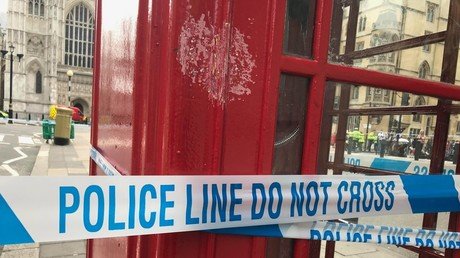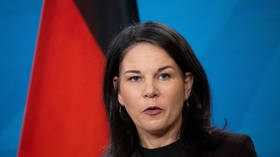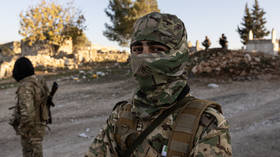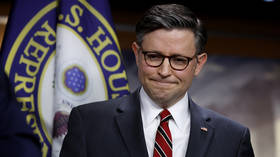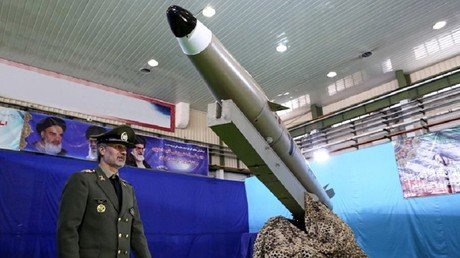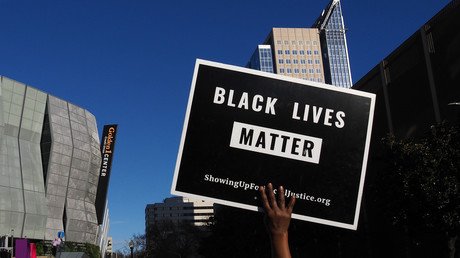Westminster blues: Could the UK authorities do more to make citizens safe from terrorist attacks?
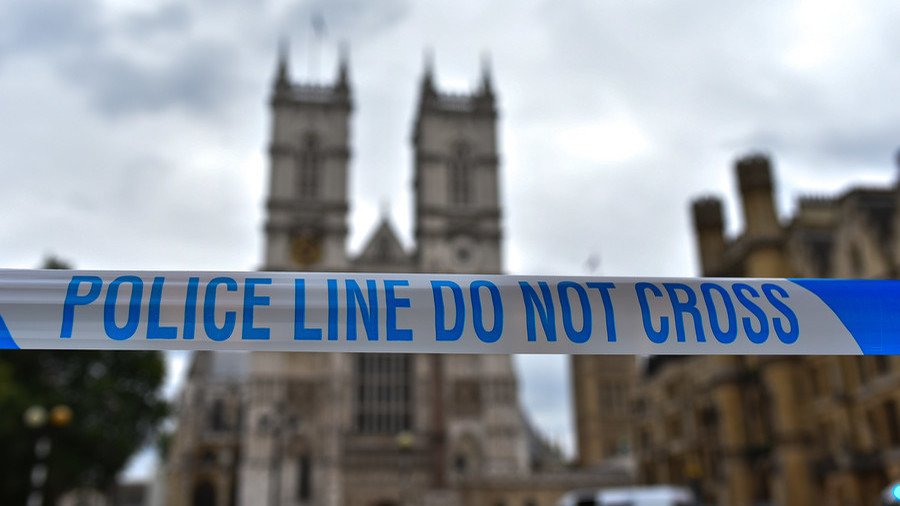
Tuesday's car ramming at London's Parliament is the third time Westminster has been targeted by attackers in the last 18 months, which begs the question: are the authorities doing enough to keep Britons safe?
If you had a feeling of deja vu when seeing the headlines about a car-ramming incident at Westminster on Tuesday morning, then it's hardly surprising. After all, it's the third time in 18 months that the area has been targeted by terrorists.
In March 2017, a car ramming and stabbing led to five deaths, including that of the attacker, who was shot dead by the police. In April this year, another terrorist plot was foiled, when a would-be attacker was arrested in Parliament Square with three knives in his possession.
Thankfully in the latest attack, no one has been killed. But the fact that these incidents are still taking place is worrying to say the least. At the time of writing, we don't know for sure what the motivation was behind the attack. We do know that Islamic State (IS, formerly ISIS) claimed responsibility for the March 2017 car ramming and stabbing – even though the authorities found no direct link between the perpetrator and IS or Al-Qaeda. The would-be attacker of April 2018 had spent five years making bombs for the Taliban in Afghanistan.
Security at Westminster has been tightened and Parliament is protected by special barriers, but is there more that could be done? Arguably yes, if we bear in mind that these terrorists don't suddenly appear out of the woodwork as threats to society. They usually have a sizeable back catalogue of anti-social activity.
The prospective attacker in April was on a police watch-list and it was alleged that MI5 had tried to recruit him as a spy. Khalid Masood, who carried out the deadly attack of March 2017, was known to MI5, and was well-known to police for a series of non-terrorist-related criminal offences. We are told the suspect in the latest Westminster attacker was known to the Midlands Police, but not to MI5 or counter-terrorism police.
See the pattern? It's not just in Britain where attacks have been carried out by those whose police records included more than 'Message in a Bottle' and 'Walking on the Moon.' Mohamed Lahouaiej- Bouhlel, perpetrator of the Bastille Day Nice truck atrocity in 2016, which killed 84 people, had a record of malfeasance as long as your arm.
Paris prosecutor Francois Molins revealed that Bouhlel "was known to the police for several crimes of violence, theft and criminal damage between 2010 and 2016."
As I noted in my op-ed here, Bouhlel was arrested twice in the first three months of 2016 – for offences involving violence, yet incredibly was still at liberty in July that year, to kill 84 innocent people.
While IS claimed responsibility for Bouhlel's dastardly act, it would be wrong – as I said at the time – to blame Islam for what happened, because the perpetrator was a pretty rotten Muslim. Bouhlel drank, he took drugs and didn't go to a mosque. "He was not a Muslim, he was a 's**t,'" someone who knew him said.
A fundamental flaw with the current anti-terrorist strategy is to regard religion, and not anti-social personality disorders (sociopathy and psychopathy), as the root cause of violent acts. Those who carry out acts of gratuitous violence against the community – whether they claim to be acting in the name of 'Allah' or 'white supremacy' or 'anti-Islam' – tend to have one thing in common. They are all 's**ts.' They're usually serial offenders. They're often on drugs.
They're nearly always weirdos. Let's face it, you've got to be a real misanthrope to want to ram a car into a group of innocent people, haven't you? If we see terrorist attacks as just one manifestation of a society that's become more violent generally, we will be nearer to finding solutions.
The reality is that with or without such attacks in Westminster or elsewhere, London is a dangerous place nowadays. Just two days ago, two men were stabbed in broad daylight in Peckham, the old stomping ground of Del Boy and Rodney in the popular sitcom 'Only Fools and Horses,' set in much happier times.
Just before that, a police officer was stabbed in the leg while fighting off a gang of would-be moped robbers in Lewisham. Knife crime in the capital is at a seven-year high. Up to the end of April, there were an incredible 1,299 stabbings in London, according to police figures.
The murder rate has surged by 44 percent in the capital over the past year. London has a crime problem and terrorism is just one part of it. The causes of the crimewave are complex, and involve political, economic and cultural factors, but there's no doubt that hardcore recidivist criminals have benefited from a relatively liberal sentencing regime and that too many bad eggs – who pose a real danger to the community – are out on the streets when they should really be behind bars. Cuts in the numbers of police out on patrol (police numbers in London are at a 20-year low) have also had an impact.
Seeing terrorist attacks as part of the wider problem of a post-industrial society that's become far too atomized doesn't mean that we shouldn't take the problem of radicalization seriously. The trouble here though is that the UK government – and in some cases the security services too – have been playing a double game. British foreign policy has been dominated by destructive neo-conservative ideology in recent years, which has meant targeting a succession of secular, socialistic Middle Eastern/North African countries, which posed British citizens no threat and whose governments actually acted as a bulwark against extremist terrorist groups, like Al-Qaeda. The rise of the genocidal death cult IS was a direct consequence of the illegal invasion of Iraq and the ousting of Saddam Hussein. In Libya, the UK and its allies toppled Gaddafi with NATO acting as the de facto air force for the jihadists. In Syria again, the UK government has been on the side of religious extremists against the secular Assad, whose government protected Christians and other minorities. Just how this 'Let's attack the people who fight the extremists' policy has increased the terrorist threat to UK citizens was most shockingly evident from the Manchester Arena bombings in May 2017.
READ MORE: Spies and terrorists – how deep are links between British state and Manchester bomber?
Salman Abedi, the young man who carried out the attack, which killed 22 people, was associated – like his father – with the Libyan Islamic Fighting Group, covertly supported by the UK authorities, in their anti-Gaddafi operations. Abedi was later evacuated from Libya by the Royal Navy, less than three years before he carried out his attack.
It's worth remembering, too, that Seifeddine Rezgui, who massacred 30 British tourists (and 8 others) in Port El Kantaoui in Tunisia in 2015, was believed to have trained at a jihadist camp in NATO 'liberated' Libya.
Reducing the terrorist risk to UK citizens requires not just a comprehensive anti-crime strategy but radical changes in UK foreign policy. The close alliance with Saudi Arabia, whose Wahhabi ideology inspires much extremism, makes a mockery of the UK government's claim to be fighting extremism. The UK's ties with Israel also need reviewing as the pro-Israel lobby has been in the forefront of those clamoring for military action against secular Arab states such as Libya and Syria, who stood against Al-Qaeda-type groups. The pro-Israel lobby wants the UK to regard its enemies as enemies of the UK, but very often this means Britain acting against its own best interests.
Obscenely, and quite outrageously, it's been Russia – which doesn't threaten UK citizens, and whose supporters don't ram cars into citizens at Westminster or attempt to blow up young people at pop concerts, or indeed massacre British tourists on the beach in Tunisia – which has been placed by the neocon establishment at the top of the 'threats' facing Britain.
That's because Russia has thwarted the elite's regime-change plans in Syria and has acted as an increasingly assertive counterweight in recent years to Western imperialism. To add insult to injury, the Russian military has also been fighting the very same jihadist sects in Syria, whose adherents do threaten UK citizens. The irony is that the Kremlin's foreign policy – for all the flak it receives – is more attune to the national interest of the UK and UK citizens than the UK's is. Think of all the funds spent countering a non-existent Russian security threat to Britain and how they could boost the fight against real crime at home. Russian propaganda? Not really.
No less a personage than Tony Blair, UK prime minister from 1997-2007, has called for an anti-terrorism alliance with Russia.
Now, you could say that's a bit rich from him given that it was his (and Bush's) invasion of Iraq which gave such a boost to the terrorists. But even a stopped clock is right twice a day and the 'Blair Creature' as Peter Hitchens calls him, happens to be right on this one. But while his every utterance on Brexit or domestic British politics makes front-page news, Blair's unusually sensible words on this topic were largely ignored. That's because they didn't fit the current Russophobic narrative.
The dangerous contradictions of UK's anti-terrorist policies are there for all to see. A new approach is required, which necessitates the ending of the binary and disjointed thinking which plagues so much of contemporary discourse.
Follow Neil Clark @NeilClark66
Think your friends would be interested? Share this story!
The statements, views and opinions expressed in this column are solely those of the author and do not necessarily represent those of RT.

